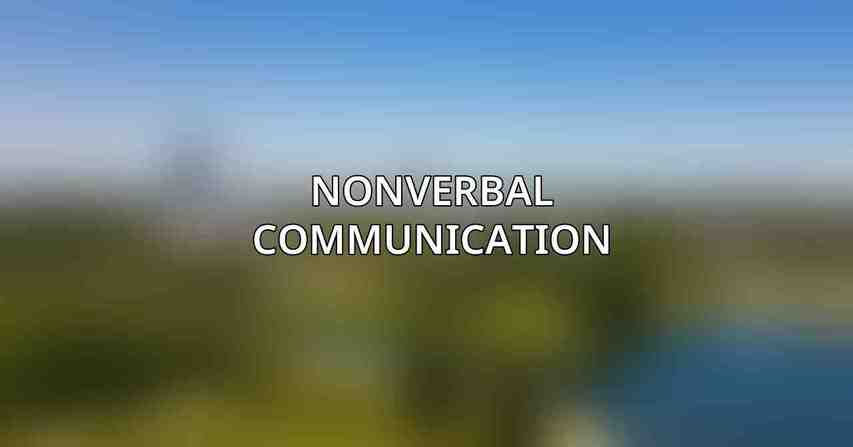Effective team communication is a cornerstone of success for small businesses. The significance of establishing clear and open channels of communication cannot be overstated. It plays a crucial role in enhancing productivity, fostering collaboration, reducing misunderstandings, and increasing employee engagement.
Improved productivity is a direct result of streamlined communication within teams. When information flows seamlessly, tasks are completed efficiently, deadlines are met, and projects progress smoothly. Collaboration thrives when team members can easily share ideas, provide feedback, and work together towards common goals. Reduced misunderstandings lead to fewer errors, less rework, and a more harmonious work environment. Additionally, increased employee engagement is a natural byproduct of effective communication, as team members feel valued, heard, and connected to the organization’s mission.
Strategies to Enhance Team Communication
In order to optimize team communication within small businesses, several strategies can be implemented: Explore further with Overcoming Remote Team Collaboration Challenges
Establish Clear Communication Channels

Creating clear communication channels is essential for ensuring that information flows effectively within the team. These channels should be tailored to suit the needs of different types of communication and accessible to all team members. Utilizing a combination of face-to-face meetings, video conferencing, email, and instant messaging can cater to various communication preferences.
Foster Open and Honest Communication
Promoting a culture of open and honest communication is key to building trust within teams. By establishing a psychologically safe environment where team members feel comfortable expressing their thoughts and ideas, active listening, feedback, and constructive dialogue can flourish.
Set Clear Communication Expectations
Defining communication protocols, guidelines, and expectations helps in aligning the team on how communication should occur. Establishing norms for meeting frequency, email etiquette, and response times ensures that everyone is on the same page regarding communication standards.
Use Effective Communication Tools
Leveraging modern communication tools such as project management software, video conferencing tools, instant messaging platforms, and team communication apps can significantly improve the efficiency and effectiveness of team communication.
Encourage Feedback and Recognition
Regularly seeking feedback from team members, acknowledging effective communication, and using feedback to enhance communication practices fosters a culture of continuous improvement within the team.
Address Communication Challenges
Identifying and resolving communication barriers, addressing conflicts promptly, and seeking external support when needed are essential in overcoming communication challenges that may arise within small businesses.
Best Practices for Effective Team Communication
In addition to the strategies mentioned above, the following best practices can further enhance team communication:
Active Listening
Active listening involves giving full attention to the speaker, asking clarifying questions, and ensuring understanding by paraphrasing. By avoiding interruptions and showing respect for others’ opinions, active listening can significantly improve communication quality.
Nonverbal Communication

Nonverbal cues like maintaining eye contact, using appropriate body language, and being mindful of personal space are essential elements of effective communication that complement verbal interactions. Find more on Best Collaboration Tools for Small Businesses in 2024
Avoid Communication Overload
Prioritizing essential information, using clear and concise language, and leveraging technology to streamline communication processes can prevent communication overload and ensure that messages are effectively conveyed.
Encourage Diversity and Inclusion
Valuing diverse communication styles, creating inclusive environments where all team members feel welcome to contribute, and providing opportunities for every individual to have a voice are fundamental for fostering a culture of diversity and inclusion within teams.
effective team communication is a catalyst for success in small businesses. By implementing the outlined strategies and best practices, organizations can enhance productivity, collaboration, and employee engagement. It is essential for small businesses to prioritize improving team communication to drive growth and achieve their business objectives successfully. You can find more information on Project Management Basics for Small Business Success
Implementing these strategies within your small business can lead to significant improvements in team communication and overall operational efficiency. By fostering a culture of open communication, setting clear expectations, utilizing appropriate tools, and incorporating best practices, small businesses can create a collaborative and productive work environment. Start implementing these strategies today to witness the positive impact on your team dynamics and business outcomes.
Frequently Asked Questions
What are some common challenges in team communication for small businesses?
Some common challenges include lack of clarity in roles and responsibilities, poor feedback mechanisms, and ineffective communication tools.
How can small businesses improve team communication?
Small businesses can improve team communication by setting clear goals and expectations, utilizing collaboration tools, promoting open dialogue, and fostering a culture of trust and transparency.
What role does leadership play in improving team communication?
Leadership plays a crucial role in setting the tone for effective team communication. Leaders should communicate clearly, provide regular feedback, and encourage open communication among team members.
How can small businesses deal with remote team communication challenges?
Small businesses can deal with remote team communication challenges by implementing regular check-ins, utilizing video conferencing tools, setting clear expectations, and fostering a sense of belonging among remote team members. Explore further with Building a Collaborative Team Culture in Small Businesses
Why is effective team communication important for small businesses?
Effective team communication is important for small businesses as it leads to improved collaboration, increased productivity, better decision-making, and a positive work culture.

